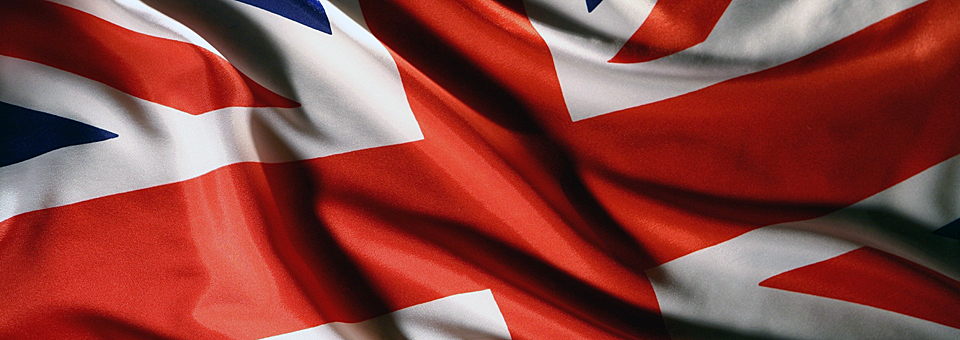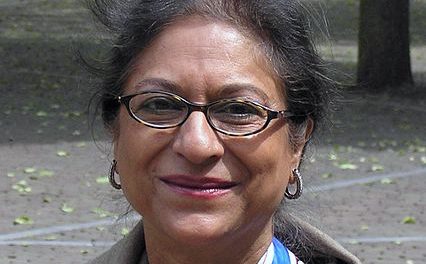Last week, two tidbits of news caught my eye amongst the continuous updates on the budget impasse issuing from across The Pond. The first ended up taking a major chunk of British headlines, as it spiralled from a lacklustre article into a national debate. In a most unfair appraisal, Ralph Miliband, the father of the current Labour Party leader, was dubbed rather ungraciously as ‘The Man Who Hated Britain’. The second, something that went almost unnoticed amongst the aforementioned sagas, was the news that amongst all religious groups – including Christians – Sikhs are the most likely to call themselves British. In a week where ‘Britishness’ was being brought to the forefront, I’m keen to explore why Sikhs see themselves as British, and ask from a Sikh theo-political standpoint if this should happen at all.
It would be pertinent to start with a description of what ‘Britishness’ actually is. Truth be told no one really knows. Ask the Daily Mail and they would probably retort with ‘great clubs’, Eton and Harrow, Oxford and Cambridge. Ask Ralph Miliband (well, his memoirs anyway) and ‘Britishness’ encapsulates worker solidarity and revolt. It is suffice to say the idea of Britishness is malleable and dependant on the Brit in question.
But why are Sikhs so British? Apparently 62% of us ticked a box in the 2011 census to say that our ‘national identity’ is British. Perhaps it’s due to our mixed cultural heritage – half of this, half of that – it being an accommodating label that is tolerant of complexity and difference. Maybe there’s the ‘1984 effect’ at work, with Sikhs keen to distance themselves from the ‘Indian’ label. Or maybe there’s a shared value system here – equality, fairness, women’s rights; things that the Path of Guru Nanak and Britain share. It’s probably all of these and a bit more too, but if you ask my Dad, someone who was born and bred in sunny Southampton, he would resoundingly tell you that he is not British – and not Indian for that matter too.
My father’s reasoning is relatively straightforward – he remembers the past, when youths (and adults), almost endorsed by national sentiment, went around ‘dot busting’ and ‘Paki bashing’, common euphemisms (yes euphemisms) for a brutal campaign against the ‘foreign’ that occurred during the 70s and 80s. And he’s not ‘Indian’ because of 1984. He does describe himself as a Sikh though, and in his own words ‘however lapsed I may be’.
The enigma that is my father’s situation poses some interesting ideas and even more questions! Yet it highlights above all that when there is a situation where a minority, themselves or their views, are singled out by the majority, the ascription of ‘national identity’ declines. In the case of my father he felt there were no shared values and therefore he could not ascribe to the national identity.
The Sikh Gurus were subjects of the Mughal Empire. They laboured in the State of Punjab, and paid their taxes to the authorities. Yet they did this because, at least up till the death of Akbar, there were shared values between them and the State. And when they felt the State was being too harsh, such as imposing Jazia (tax on non-Muslims), they laboured to change the status quo. This however, did not stop them from creating a State within State, which became more vigorous when the Empire’s attitudes towards them changed.
Recalling Guru Nanak’s concept of spiritual and physical freedom, it was proposed that the individual cannot be attached to the physical. What was required is that he or she interact with the physical and use it for spiritual gain. In this way a person could simultaneously be mentally emancipated whilst being part of the ‘Wonderful Drama’.
So as Sikhs, how should we interact with the State? And are we part of it? Physically we are part of the state but as the Guru’s showed you can only truly belong to it if its values are in tandem with Sikh values. The example of Guru Tegh Bahadur’s martyrdom is a clear cut example of Sikhism’s interaction with the physical, in this case the State, to engender a higher state of the spiritual, in this case, morality. Yet such a sacrifice failed to affect the conscience of its administrators and as such Sikhs were left in a place of no belonging – which itself heralded the later formation of the Khalsa Raj. That’s a story for another day though.
For many readers, the proposition that a Sikh can only belong if Sikh values are to be found in the State may seem difficult. For me it’s very simple. As long as Britain continues to share Sikh values I shall remain British. That’s not to say, however, that at the first instance of deviation I shall dismiss the State. Just like Guru Amar Das did with pushing for the abolition of Jazia, Guru Tegh Bahadur’s defence of right to religion and Ralph Miliband beliefs on social reform, the State and national identity are malleable. 62% of Sikhs have endorsed Britain, and I as a Sikh am with them too, until perhaps that day comes when Britain does not endorse us. In the meantime, I will work with Britain, live in Britain, be a Briton but remain dedicated to finding my ‘national identity’ in Truth.






